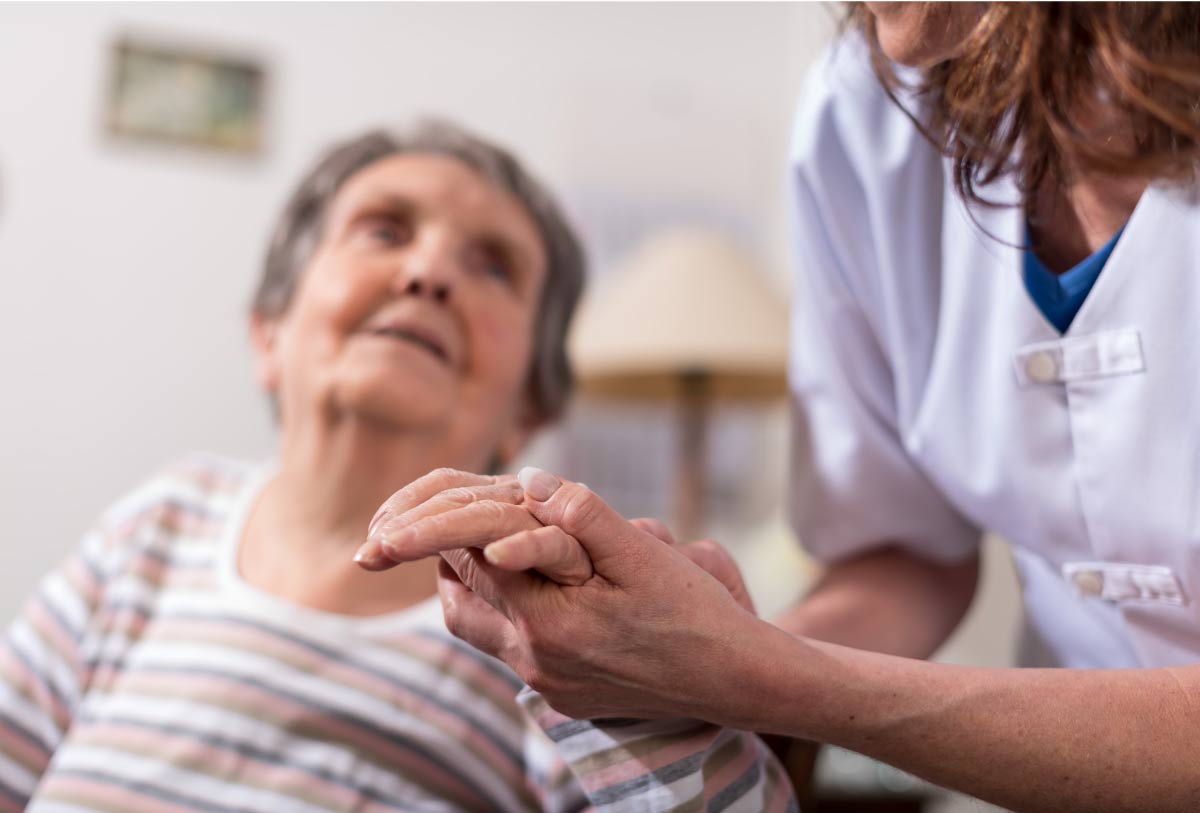Many enjoyable activities are completely free or low-cost and easy to start from the comfort of home. Here are 10 simple ideas to spark joy and keep the mind and body active, all while honoring your independence and interests.

A guide to fun, affordable ways to stay active, connected, and creative
A recent study found that seniors who have both hobbies and a sense of purpose live longer, stay healthier, and maintain their independence for longer. Enjoyable daily activities aren’t just for fun, they can have a real impact on quality of life.
Benefits of having a hobby include:
● Sharper memory and mental function
● Better physical health and mobility
● Improved emotional well-being and reduced stress
● Lower risk of depression and isolation
● Greater sense of purpose and daily joy
● More structure and motivation throughout the day
The research found that older adults with hobbies and a purpose were more than twice as likely to enjoy longer, healthier lives. Whether it’s painting, reading, gardening, or cooking, hobbies can support both physical and emotional well-being. While this guide focuses on seniors, hobbies are beneficial for all life stages, supporting mental, emotional, and physical health at any age. And they don’t have to cost a lot.
Many enjoyable activities are completely free or low-cost and easy to start from the comfort of home. Here are 10 simple ideas to spark joy and keep the mind and body active, all while honoring your independence and interests.
Engaging in artistic activities is a fantastic way to express creativity and emotions. It stimulates the mind and can bring a lot of joy simply from the act of creating. Even simple activities like sketching, painting, or coloring can have a calming effect.
Example: Sketching or painting with basic supplies like pencils, paper, or watercolors.
Benefits: Art helps reduce stress, boost mood, and improve focus.
Crafting involves focused, hands-on activities that can be both calming and meditative. The repetitive motions often help relieve stress, while completing a project brings a real sense of pride. Scrapbooking, in particular, combines creativity with memory-keeping and has been shown to support emotional processing, self-reflection, and even therapeutic use in counseling settings.
Example: Knitting or crocheting with a simple ball of yarn and needles or hooks, or creating a scrapbook filled with photos and journaling.
Benefits: Crafting promotes hand-eye coordination, encourages mindfulness, and in the case of scrapbooking, helps preserve memories and support mental well-being.
Books offer a doorway to new worlds and ideas. Reading supports mental stimulation, encourages learning, and provides a relaxing escape from daily stress. It’s a versatile hobby that can be done alone or shared with friends through book discussions.
Example: Visiting a local library to borrow books or e-books for free, or listening to audiobooks.
Benefits: Reading improves cognitive function and reduces feelings of loneliness.
Writing offers a way to express yourself, reflect on life, and preserve memories. It keeps the mind active, strengthens vocabulary, and can boost confidence, especially when sharing stories with others. Journaling or storytelling also helps organize thoughts and emotions.
Examples: Journaling, creative writing, or storytelling, like writing short stories or recording family memories.
Benefits: Writing strengthens memory, supports emotional processing, and encourages
self-reflection.
Physical activities help maintain strength, endurance, and coordination, while also fostering a sense of community when done in groups. Gentle movements such as yoga, stretching, pilates for seniors, or tai chi can improve circulation, balance, and energy. Consistent activity also reduces the risk of falls and enhances mood.
Example: Taking daily walks, light jogging, or following free YouTube yoga videos.
Benefits: Movement improves physical health, reduces stress, and boosts mood.
Gardening connects you with nature, provides light exercise, and the satisfaction of nurturing plants. It encourages patience and observation as you watch plants grow. The process can be meditative, lowering stress while giving a sense of purpose. Research suggests that the more connected we feel to nature, the greater our sense of life satisfaction.
Example: Growing herbs or small vegetables in pots on a windowsill or balcony.
Benefits: Gardening reduces stress, encourages daily activity, and promotes a sense of accomplishment.
Volunteering gives a sense of purpose and contribution while expanding social connections. Even activities done from home, like pen pal programs or online mentoring, can provide meaningful engagement. It also helps build empathy and a stronger sense of community.
Example: Helping at a local food bank, animal shelter, or community organization.
Benefits: Overall, volunteering improves emotional well-being and reduces social isolation.
Joining clubs or societies is a great way to meet people with similar interests and to maintain a sense of belonging. These groups often provide regular social interaction and mental
engagement. Being part of a group encourages consistency in activity and shared learning.
Example: Participating in a book club, local walking club, or board gaming group.
Benefits: Clubs enhance social interaction, reduce loneliness, and promote mental engagement.
Challenging your brain with puzzles keeps the mind sharp, improves focus, and provides a fun sense of accomplishment. Structured challenges such as logic games or brain teasers are excellent for maintaining cognitive function. Many can be done alone or with friends, adding a social element.
Example: Crossword puzzles, Sudoku, logic games, or free brain-training apps.
Benefits: Brain games improve cognitive function and memory.
Trying new recipes or experimenting in the kitchen is creative and rewarding. Cooking engages multiple senses, encourages planning, and can improve nutrition and healthy eating habits. It’s also a way to explore cultural traditions or personal creativity.
Example: Trying a new healthy recipe each week, making homemade bread, or experimenting with simple ingredient swaps.
Benefits: Cooking stimulates the brain, encourages mindfulness, and supports healthy eating habits.
Hobbies don’t need to be costly to be meaningful or positively impact well-being. In fact, hobbies are beneficial for people of all ages and every stage of life, supporting mental, emotional, and physical health. The ideas above are just a starting point, there are countless ways to turn your interests intoenjoyable activities. Pick what fits your lifestyle and comfort level, whether you prefer doing something on your own or joining a group. The most important part is to have fun, feel engaged, and gain a sense of purpose and conne
● YouTube: A vast collection of free videos for learning arts, crafts, gardening, cooking, and home exercises like yoga. Great for discovering new hobbies and following along at your own pace.
● Volunteer BC: A centralized platform for finding local and remote volunteer opportunities throughout British Columbia. It connects people with a wide range of community roles.
● MyImpactPage: This platform links volunteers with organizations across BC. Individuals can explore opportunities such as community health support with Vancouver Coastal Health, and local event assistance with municipalities like the City of Burnaby. It’s a convenient way to find meaningful ways to give back and stay socially engaged.
● Local Libraries: Offers free access to books, e-books, audiobooks, and often hosts community programs, workshops, or hobby groups. Libraries are a valuable hub for learning and staying connected.
● Project Gutenberg: A free online library with over 75,000 e-books, including classics, non-fiction, and more. The books are easy to download and accessible anytime, making it a convenient resource for readers of all interests.
● Community Centers, Senior Centers: Many local centers provide free or low-cost classes, including yoga, exercise, arts, and hobby groups. They are a great way to stay active, try new skills, and meet others in the community.



Looking for love can feel both exciting and a little intimidating, and that’s completely normal. Many seniors find themselves single later in life due to divorce, separation, or the loss of a beloved partner.
Your donation helps provide essential home care, making it possible for local seniors to age with dignity and comfort.
More at Home acknowledges with gratitude that we live and work on the traditional and unceded territory of the Katzie and Kwantlen First Nations in Maple Ridge, British Columbia.
We honour the rights and histories of all Indigenous Peoples, including First Nations, Métis, Inuit, and are committed to fostering inclusive, respectful, and equitable relationships in all that we do.

